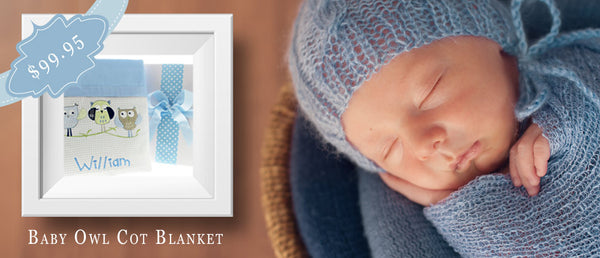
Getting Baby To Sleep
Karen WarburtonWhether a good sleeper or a poor one, your baby can be helped to sleep better with some or all of the following sleep enhancers, many of which help re-create some of the comforts of home in the womb:
- Cosy sleeping space - A cot is a great modern invention but in the early weeks many newborns somehow sense its vastness and don't enjoy being put in a big cot, far away from the warmth and comfort of what they were used to in the womb. If your baby seems uncomfortable in the cot, why not try an old-fashioned cradle or bassinet. This will provide your baby with a snugger fit that's closer to the nine-month-long embrace in the uterus. For added security, swaddle baby, tuck bedding in snugly and use a gown that ties at the bottom or a baby sleeping bag instead of a blanket.
- Controlled temperature - Being too warm or too cold can disturb a baby's sleep. In cold weather, baby's room should be kept at between 20-22C by day and between 15.5-18C by night. If indoor temperatures are higher than this, the arid heated air can dry the mucous membranes of the nose, making them more vulnerable to cold germs, and also the skin, making it itchy. Make layers of light blankets for warmth and comfort. If your baby regularly kicks the blankets off, use a sleeping bag or a blanket sleeper. Keep in mind that your baby's room is cooler at night than during the day, and that extra covering is needed during sleep, when metabolism slows. But try not to make the common mistake of over-dressing your baby for bed. And if he or she awakens in the night in a pool of perspiration, remove a layer or two of covering.
- Soothing movement - In the uterus, babies are most active when their mothers are at rest; when their mothers are up and on the go they slow down, lulled by the motion. Out of the womb, movement still has a soothing effect. Rocking, swaying, and patting will all contribute to contentment - and sleep.
- Soothing sound - For many months your heartbeat, the gurgling of your tummy, and your voice entertained and comforted your baby. Now sleeping may be difficult without some background noise. Try the hum of a fan, the soft strains of music a radio or stereo, the tinkling of a music box or musical mobile, or one of those baby soothers that imitate uterine sounds.
- Isolation - Babies sleep better when they are in a room of their own. At an early age, it's not so much that they're disturbed by your presence, but that you're more likely to pick them up at the least little whimper, breaking up their sleep unnecessarily. You should, however, be close enough to hear your baby's cries before they turn into frantic ear-piercing wails - or install an intercom or baby monitor between your baby's room and yours.
- Routine - Since your newborn will fall asleep most of the time while nursing or bottle-feeding, a bedtime routine might seem unnecessary. But it's never too early to begin such a routine, and certainly by the age of six months it should top off every evening. The ritual of a warm bath, followed by being dressed in night clothes, a little quiet playtime on your bed, a sing-song story or nursery rhyme from a picture book, can be soothing for the youngest baby.
-
Adequate daytime rest - Some mothers try to solve the night-time sleeping problems of their babies by keeping them awake during the day, even at times when their baby wants to sleep. This is a big mistake (though it is all right to limit the length of daytime naps a little in order to maintain the contrast between day and night) because an over-tired baby sleeps more fitfully than a well-rested one.


